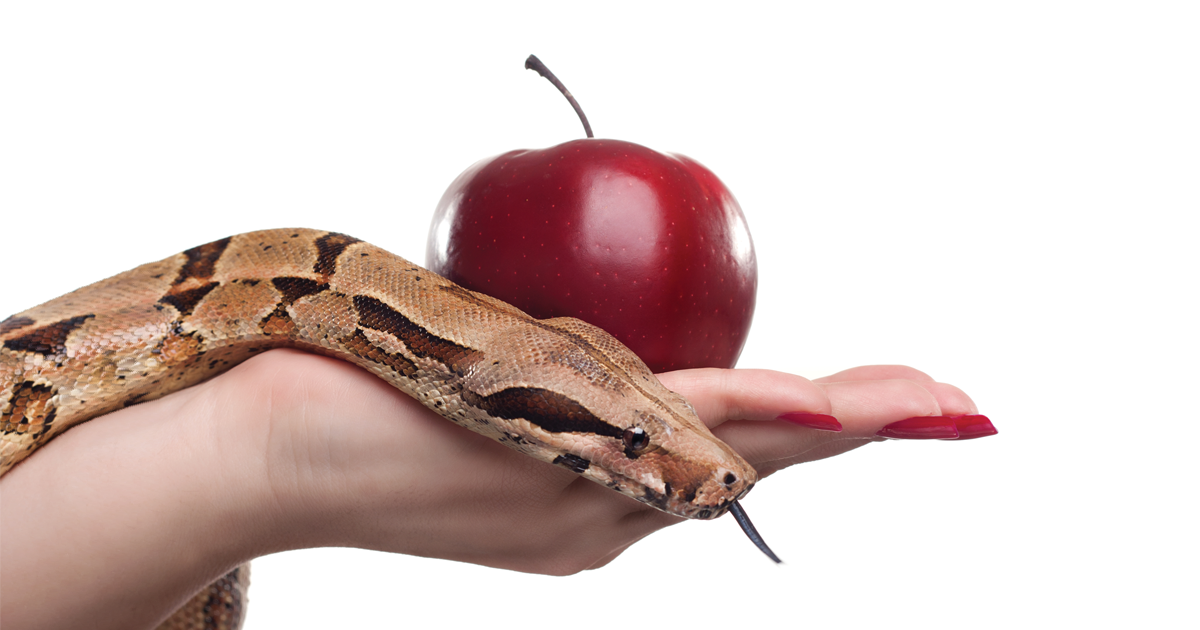7. Garden of Eden: Entrance of Evil
Exploring Genesis 2:9-22.
I began this series with the idea from Genesis 2:7 that “God planted a garden.” There are many examples in Scripture that employ the metaphor of gardening or growing. We will lead up to Easter by exploring three gardens: the Garden of Eden, the Garden of Gethsemane and the Garden Tomb. It is not accidental that what began in the Garden of Eden—sin, is dealt with in Gethsemane and ultimately defeated in a garden.
The second chapter of the Book of Genesis states that God planted a garden with beautiful trees that produced delicious fruit (2:9). These included the tree of life and the tree of the knowledge of good and evil. A river watered this garden (2:10). God placed man in it to tend and watch over it (2:15). God told the man, Adam, that he might freely eat fruit from all the trees except for the tree of the knowledge of good and evil. God then proceeded to find the man a helper. When the animals came, the man named them, but “there was no helper just right for him” (2:22). God then created woman from man’s rib and they were united as one.
This is a beautiful picture of paradise; with man and woman in harmony with their Creator and supplied with all they need for a happy life.
Then the serpent had a conversation with Eve. The serpent was the shrewdest of all and began by asking Eve, “Did God really say … ” (3:1). Eve responded, “of course we may eat fruit from the trees in the garden.” She continued to say that there was only one tree that was forbidden, for if they ate its fruit they would die. The serpent countered God’s warning, telling the woman “you won’t die,” but that her eyes would be opened, and she would be “like God!”
Verse six says that she was convinced when she listened to the serpent. She used her God-given ability to hear and see to receive the serpent’s words and perceive “that the tree was beautiful and its fruit looked delicious” (see 2:9). Sound and sight produced a desire in her that led her to disobey God’s warning. She placed her want over God’s will. She was not satisfied with obeying and trusting her loving Creator.
Her willful choice to eat the forbidden fruit is the choice Jesus faced in another garden (more on that next month).
Disobeying God was only the beginning. She gave some to her husband and he ate the fruit God had warned about. “At that moment their eyes were opened, they suddenly felt shame” (3:7). Their nakedness, which they had been content with, now brought shame and guilt. When they heard God coming, they hid from Him. Along with the shame that sin brought, they were also afraid.
Guilt and fear are fruits of sin, and result from disobeying God and going our own way.
God then asked a series of very interesting questions:. “Where are you?” “Who told you?” “Have you eaten?” And finally, “What have you done?”
When God asks questions, he knows the answers. We need to hear them from Him, and we need to respond, acknowledging our sin and disobedience. The man blamed the woman “You gave me,” and the woman blamed the serpent who deceived her.
Although we may blame others for our situation, it is still our choice—whether to obey God or ourselves.
Because of their sin, Adam and Eve were banished from the garden God had created for them and suffering became part of their lives. Where they once walked with God, that relationship was shattered, and they were separated from their loving Creator. Romans 5:12 says “When Adam sinned, sin entered the world. Adam’s sin brought death, so death spread to everyone, for everyone sinned.”
The Salvation Army’s fifth doctrine states in part that “by their disobedience they lost their purity and happiness, and that in consequence of their fall all men have become sinners.” Psalm 14: 2-3 says “The Lord looks down from heaven on the entire human race; He looks to see if anyone is truly wise, if anyone seeks God. But no, all have turned away; all have become corrupt (useless). No one does good, not a single one!”
As we look around, we are confronted by a world controlled by sin. As we look inward, we see our desire to have our own way. We are born with an inclination to selfishness, aptly illustrated by a baby’s first impulse, “mine!” But all is not hopeless. Romans 5 goes on to say in verse 15, “But even greater is God’s wonderful grace and His gift of forgiveness to many through this other man, Jesus Christ!”







